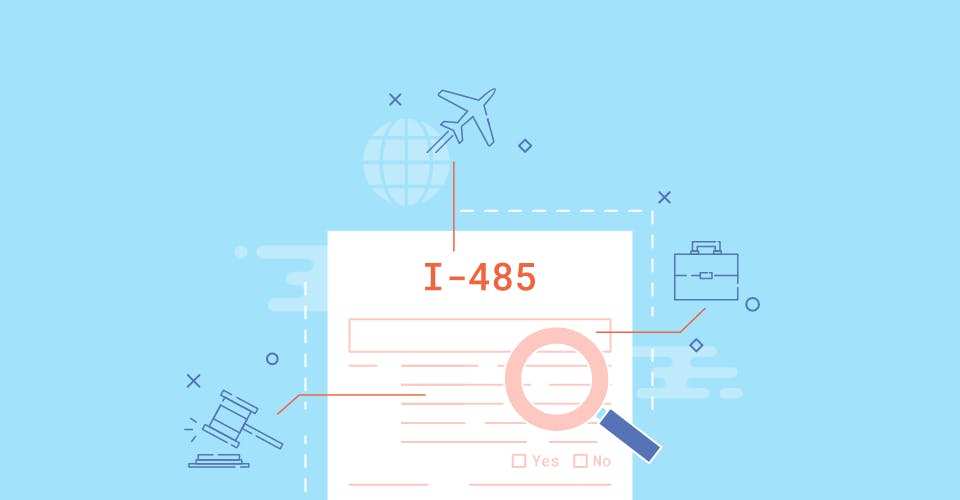The I-485 application is arguably one of the most important immigration forms for those seeking legal residence in the United States. Having a successful I-485 application, or more commonly known as a green card application, adjudicated by the USCIS means being that much closer to receiving a green card. However, the questions that make up the I-485 application are anything but simple.
The form takes applicants not just through their address and work history, but also asks very personal questions such as whether or not applicants have ever abused any substances in their lifetime, whether or not they are loyal to any other governments or specific government parties, or whether or not the applicant has ever been involved in alien smuggling or the trafficking of any goods.
While most applicants will have no issues with these questions, there might be some questions surrounding gang or membership affiliation that could make applicants inadmissible to the United States. Specifically in Part 8 of the application, General Eligibility and Inadmissibility Grounds, the USCIS asks the following two questions to every eligible applicant:
“17. Are you now or have you ever been a member of, or associated with, a group of three or more persons who acted together in the United States or elsewhere with the aim of committing any crime.”
“18. Are you now, or have you ever been a member of, or associated with, a group of three or more persons who acted together to commit, and/or attempt to commit a crime involving more than one country.”
(USCIS, 2021)
Biden Team To Scrap Questions
These questions have the intent of providing USCIS adjudicators a more full record of the applicants they are screening, but new sources from the Center for Immigration Studies, a Washington based think tank, says that political leaders and USCIS leadership are thinking about getting rid of these questions completely. The reasoning from the new administration is that it is part of a bigger process of erasing Trump era tactics of “getting tough on immigration”. However, critics who are against this new policy proposal suggest that it could make it easier for criminals to thwart the system and unjustly receive a green card in the United States.
Other activists have commented that asking the two gang related questions are in some ways racist questions because it supposes that someone who might have a specific tattoo on their body or were tangentially related to a gang but have no criminal record unfairly discriminates against their socio-economic background.
Still, even if the questions do stay, it is possible for the USCIS to approve someone’s application even if they have checked off question 17 or 18. We shouldn’t forget that the adjudication process is always a discretionary process based on the totality of all of the evidence that is provided by the applicant, and not simply based on two green card application questions.
Overall, the move to either get rid or keep these two questions is part of the new administrations plan to make further revisions on other aspects of the I-485 application. We should expect that by the end of this year the I-485 application, which has received criticism for being too many pages, could look a little bit different for green card applicants in 2022.














